
Corporate investors were behind some of the biggest funding rounds for generative AI companies in the past year. Corporate investors were in 22% of all generative AI fundraises in 2023 — nearly a quarter of all rounds — and were disproportionately present in the big-value rounds.
The total value of generative AI funding rounds involving corporate backers rose to $7bn last year. This means that 54% of all the dollars raised ($12.96bn) included some corporate backing last year.
So far, in the first two months of this year, corporate investors have spent fewer dollars but have been in a third of all rounds.
Stock markets are rewarding this investment spree, with the biggest spenders, such as Nvidia, Microsoft and Alphabet, seeing some of the biggest share price gains.
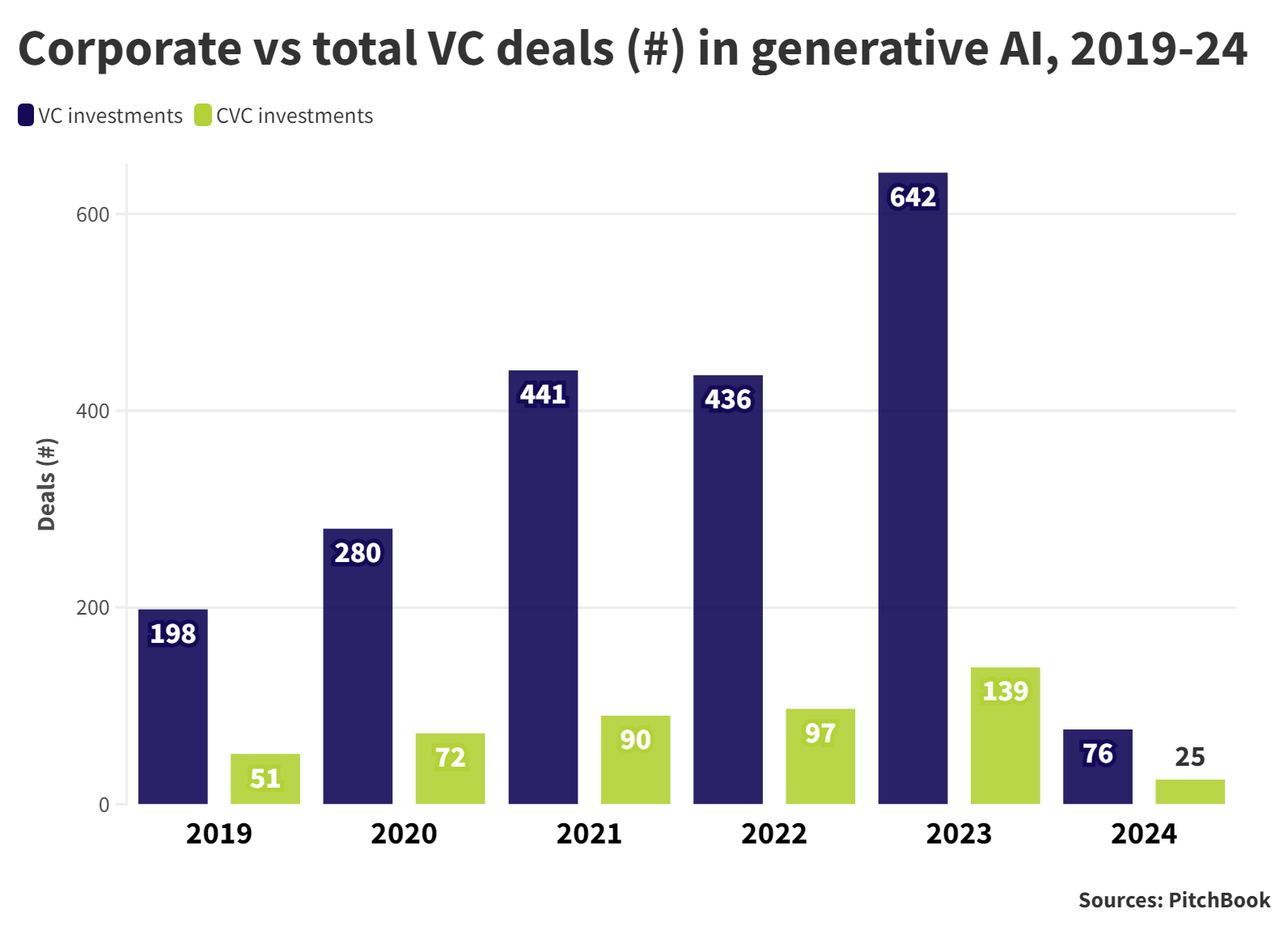
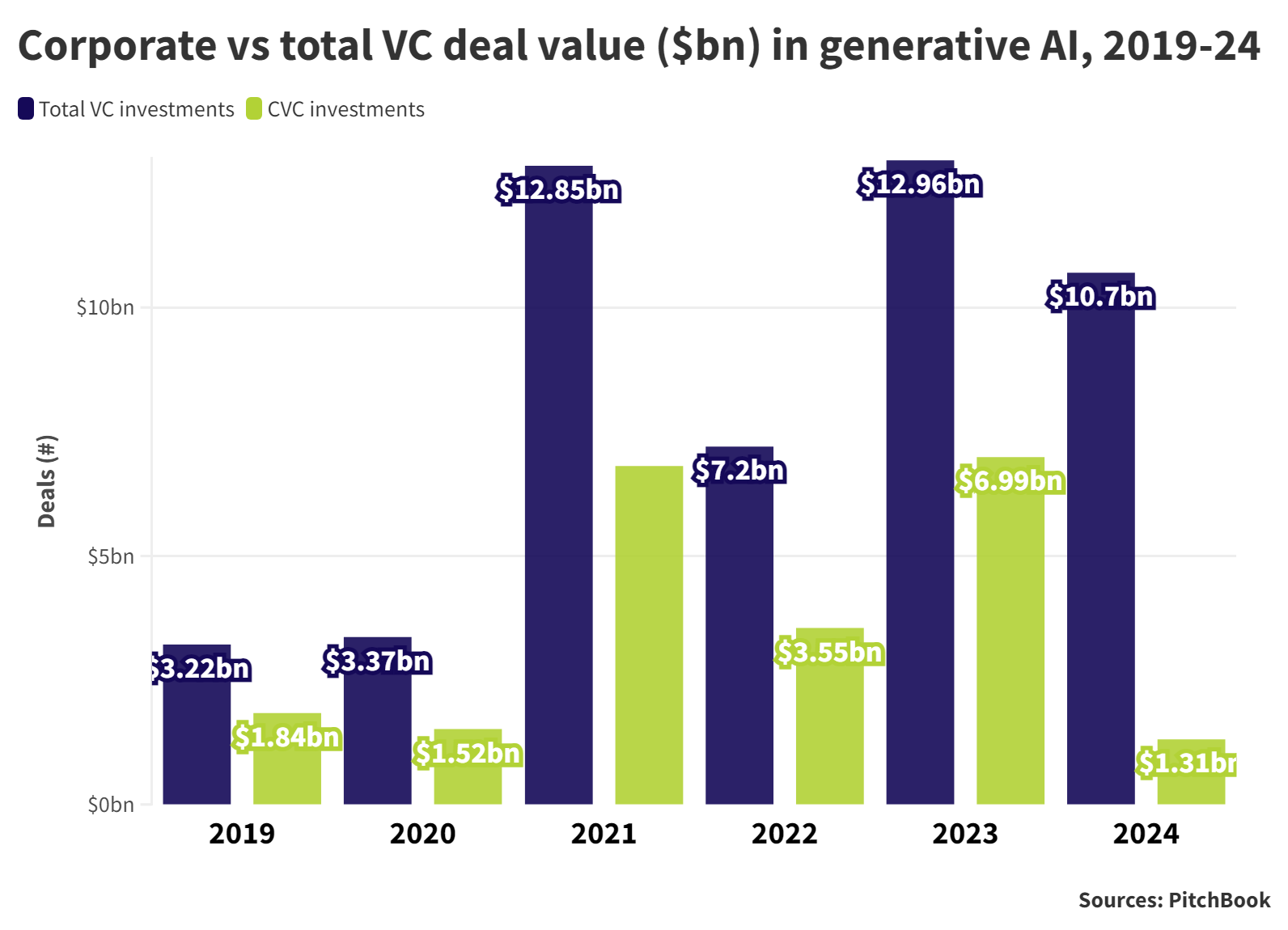
Nvidia, the global leader for chips that can perform the complex calculations needed for AI, has been the most prolific investor in AI, especially after a flurry of startup funding rounds in the past year, including:
- Kore.ai ($150m late VC, January 2024)
- Perplexity.ai ($73.6m series B, January 2024)
- Essential AI ($56.5m series A, December 2024)
- BP-FLAC ($10m early VC, November 2023)
- Iambic Therapeutics ($100m series B, November 2023)
- Machina Labs ($32m series B, October 2023)
- Twelve Labs ($10m early VC, October 2023)
- CentML (series B, September 2023)
- Evozye ($81m series B, September 2023)
- Generate Biomedicines ($273m series C, September 2023)
- HuggingFace ($235m series D, August 2023)
- AL21 ($155m series C, August 2023)
- Superluminal Medicines ($33m seed round, August 2023)
- Genesis Therapeutics ($224m series B, August 2023)
- Minds DB ($5m seed round, August 2023)
- Inflection AI ($1.3B growth capital, June 2023)
- Aleph Alpha ($100m early VC, June 2023)
- RunwayML ($141m series C, June 2023)
- Synthesia ($90m series C, June 2023)
- CoreWeave ($221M series B, April 2023)
- Adept AI ($350M series B, March 2023)
- Cohere ($270M series C, March 2023)
[See more deals in our monthly tables of corporate-backed startup funding rounds.]

Speakers at the GCVI Summit in Monterey will include the following AI investors:
- Andrew Ng, managing general partner of AI Fund
- Keith Strier, senior vice president of Worldwide AI Initiatives at Nvidia
- James Loftus, managing partner at PayPal Ventures
Alphabet’s investment arm GV, meanwhile, has taken part in 38 funding rounds for generative AI startups in the past five years, including backing Anthropic, Runway ML and HuggingFace. Bloomberg Beta, meanwhile, has invested in a number of relatively early-stage generative AI companies, such as enterprise-focused generative AI company Yurts and Air Space Intelligence, which provides AI-powered flight monitoring and optimisation.
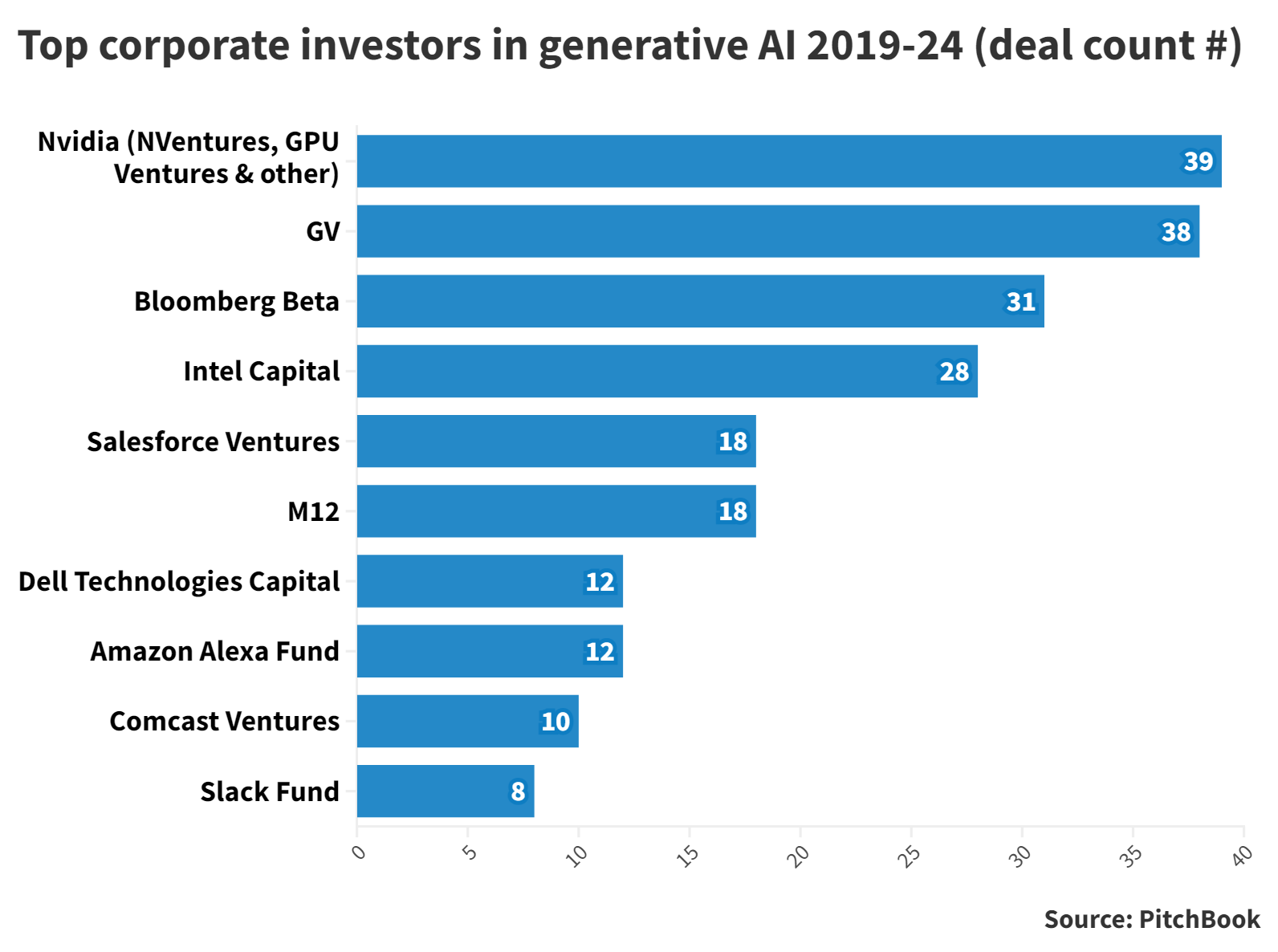
Many of the big tech companies are building a web of stakes across the generative AI ecosystem, with Nvidia, Salesforce and Microsoft in particular, spreading their tentacles wide. There is also a notable convergence of corporate tech companies investing in generative AI companies Hugging Face, Anthropic and A121 Labs.
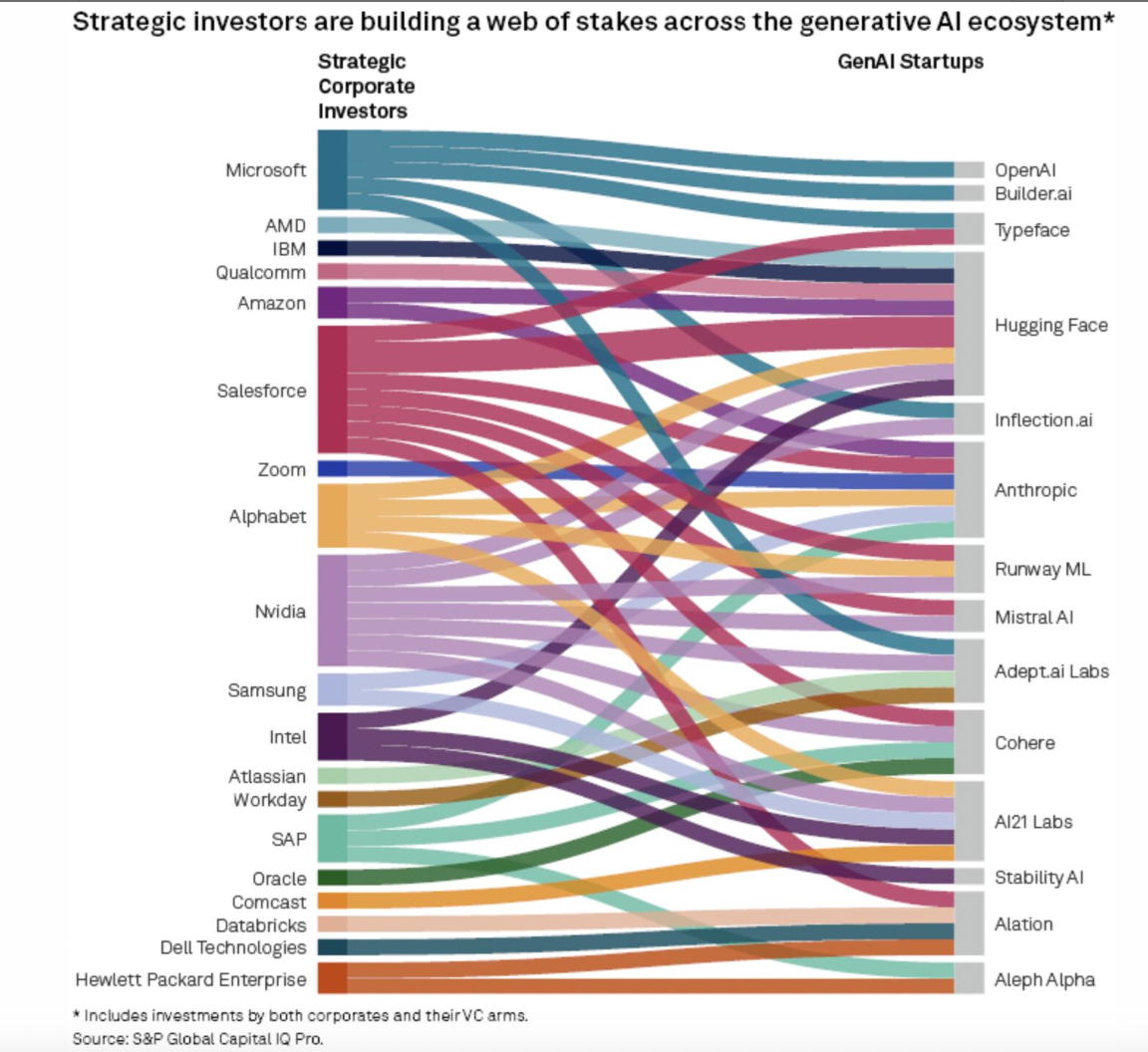
For the most part, stock market investors are rewarding the big investors in AI handsomely. Nvidia has become the fourth most valuable company in the world after its shares soared from $34 per share (post stock split from 2021) at the beginning of 2019 to nearly $800 in 2024.
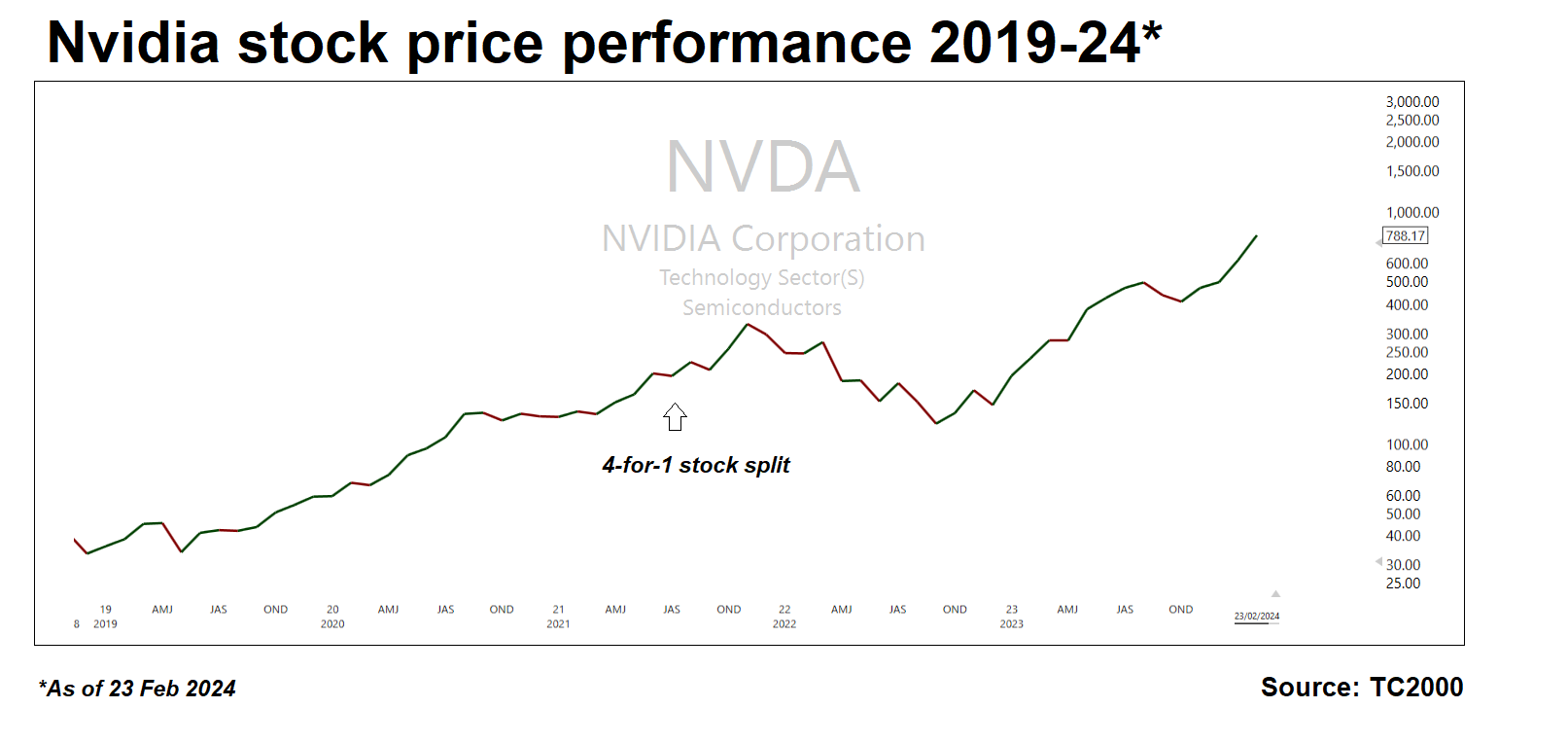
Microsoft, which has pledged to invest up to $10bn in OpenAI, has become the world’s most valuable company, overtaking Apple with a market cap of more than $3tn. Alphabet and Salesforce, too, have seen share price returns well above the S&P 500 average.
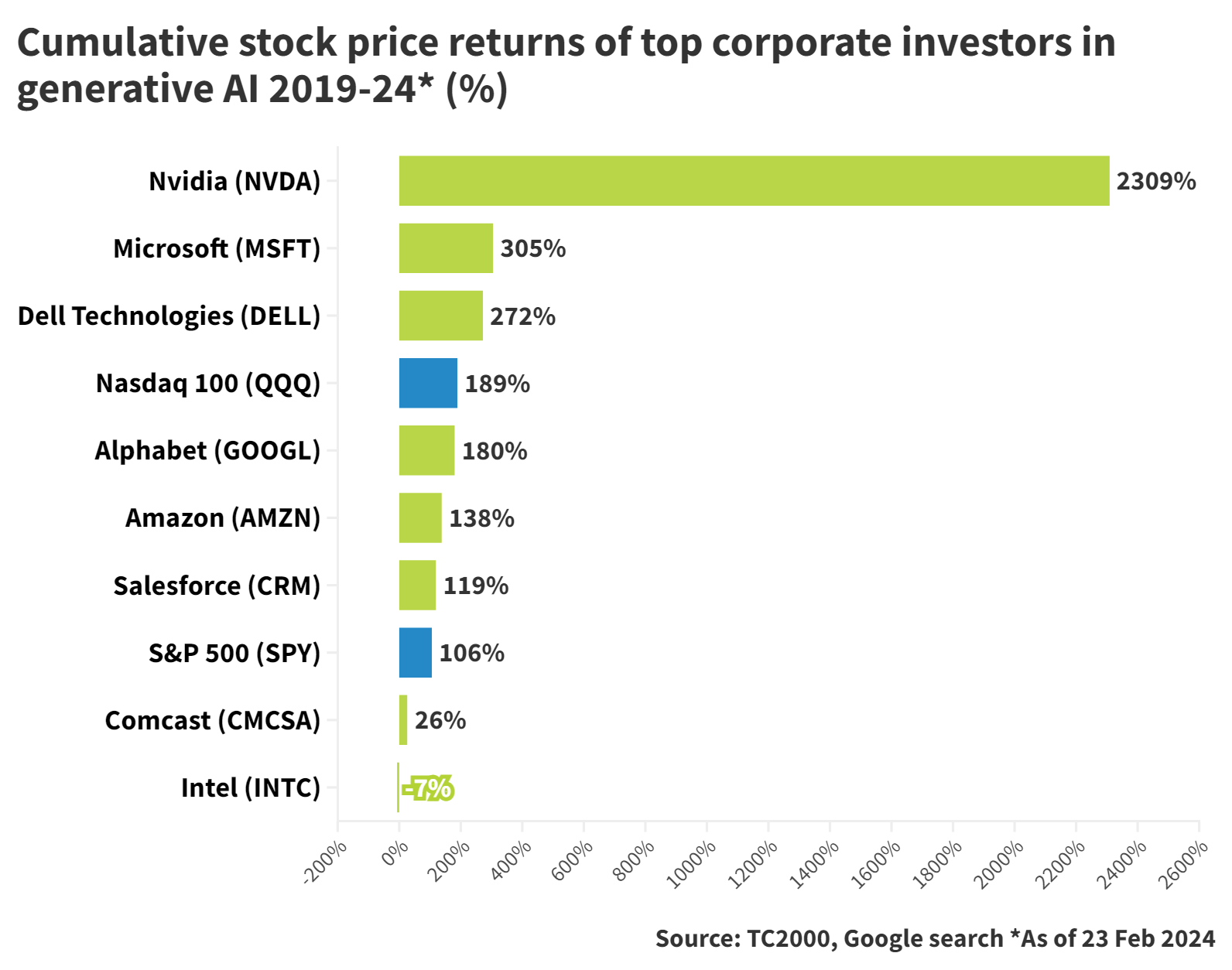
A notable exception is Intel. The chip company’s investment arm, Intel Capital, has made more than 28 investments in generative AI companies over the past five years, including recent backing for code refactoring platform Moderne, low-code and no-code security platform Zenity, as well as natural language generator AI21 Labs. But the company is languishing behind the rest of the market, with its share price down at the end of 2023 from five years ago. Despite Intel’s many AI investments, it is seen as playing catch-up to Nvidia, because of data centres’ focus on the generative AI trend and shift to buying more Nvidia graphics processing chips than Intel’s central processing units.
